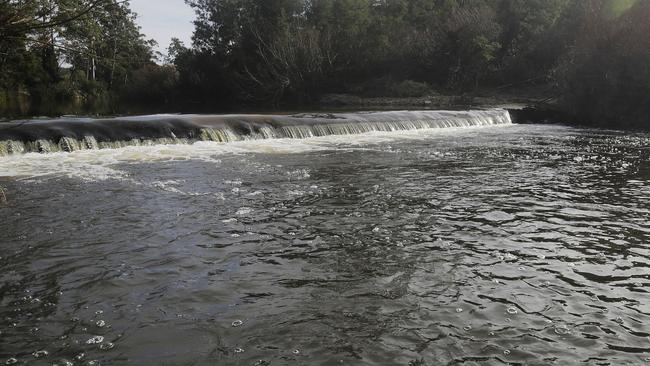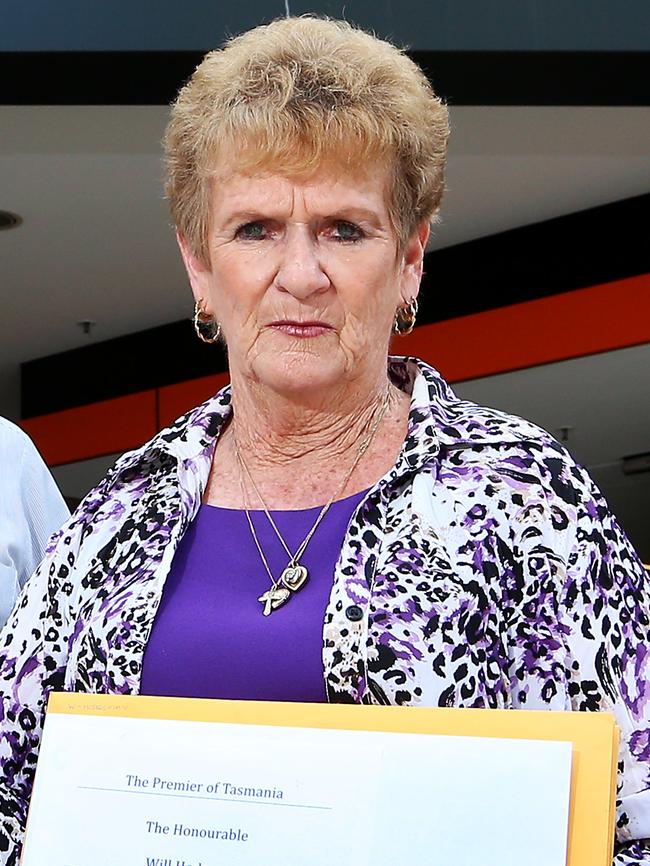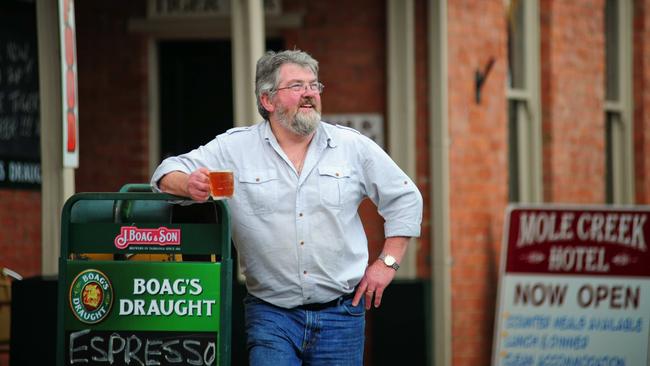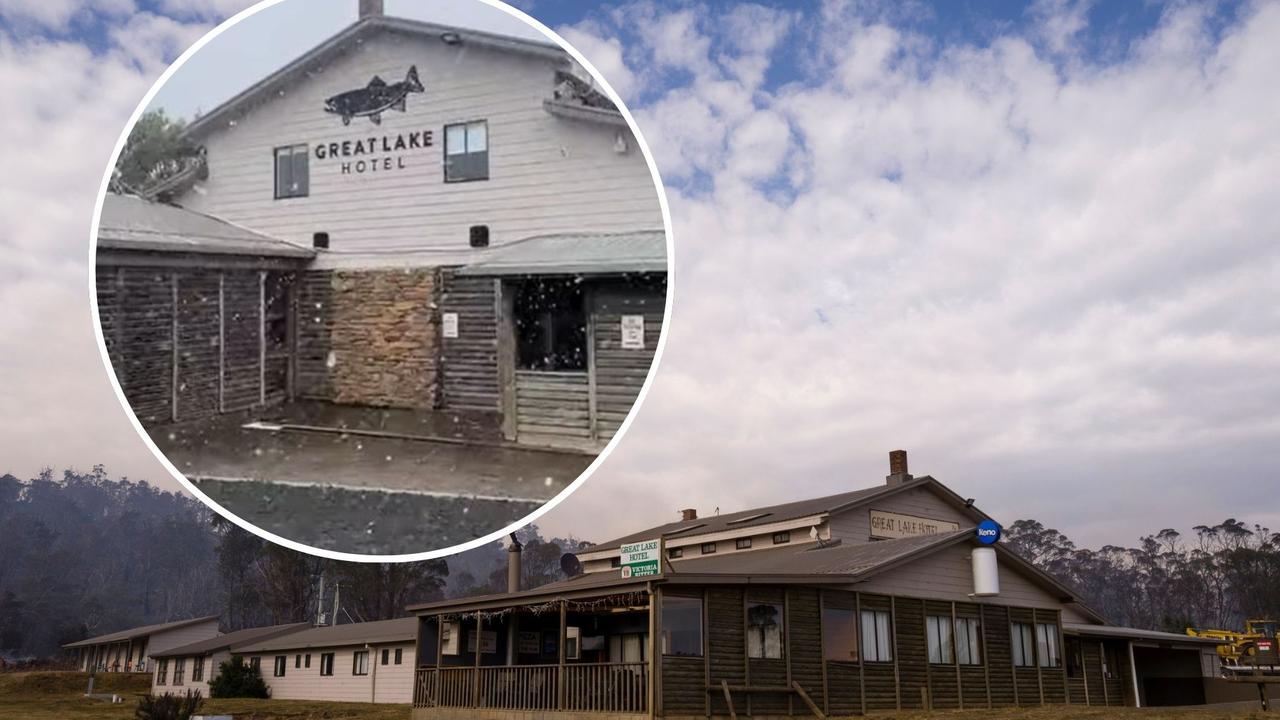Bitter reality of our dirty water woes begins to bite
IT is used to market everything from tourism to whisky, but right now, 25 Tasmanian towns are deemed Third World when it comes to their water.

Tasmania
Don't miss out on the headlines from Tasmania. Followed categories will be added to My News.
IT is used to market everything from tourism to whisky – Tasmania’s clean, clear, fresh water.
From rafting the Franklin River to scooping the world’s food and beverage awards, it is credited with giving the state a massive advantage.
But, right now, 25 Tasmanian towns are deemed Third World when it comes to their water.
This week, five of them face continuing public health alerts.
Elevated levels of lead or cadmium mean the water at Avoca, Pioneer, Rossarden, Whitemark and Winnaleah can not be consumed at all.
Locals are offered an alternative supply from tanks located outside community centres.
Residents in another 20 towns will be required to boil their water, as many have been doing for years.
It has caused health fears and sent tourists packing.
When East Coast beach haven Scamander was put on a permanent boil-water status last month, the effect was immediate, hotel owner Brian Forsyth says.
The Scamander Beach Hotel went from an average 220 rooms per winter month to just 100.
“The damage is indeterminable,” Mr Forsyth said.

“People are not going to ring you up and say, ‘We were going to book there but we can’t because we’ve heard about the boil alert’. They just drive straight through or go and ring somebody else.”
At Gretna, in the Central Highlands, locals lobbied to get warning signs placed near taps in a park popular with tourists on their way to Strahan.
For years, they have warned groups of cyclists not to refill from the taps.
“I said, ‘No, come down to my place and I’ll give you tank water’,” former store owner Kate Barnett said.
“They said, ‘You’re kidding us’. God only knows how many tourists got sick.”
Fewer of them stop now, says Ms Barnett, whose daughter runs Gretna’s pub.
“My daughter had a tourist in the hotel,” she said. “He had this [issue] on his holiday all the way around Tassie.
“He said, ‘I’m getting out of here and I ain’t coming back’.”
The sponge baths for kids, the plastic bottles and the trips to the communal tank were about to end, TasWater announced last week.
All permanent boil and do not consume alerts will be urgently addressed as the water utility injects another $400 million into its 10-year capital works program.
Half of the 24 towns targeted will be drinking water from their taps by the middle of next year, the rest within two years.
TasWater’s council owners will be hit $150 million over the decade to help pay for it all.
MORE: COUNCILS CONSIDER RATE RISES AND CUTS TO SERVICES
In the affected regions, locals are welcoming the news.
“What we benefit from will outweigh our loss to council income,” says Flinders Mayor Carol Cox, where the island’s two major settlements have never known life without water alerts.
The island’s biggest town, Whitemark, has been on a do-not-consume alert after lead was found in its supply.
“It will be a major boost for tourism,” Cr Cox said. “Certainly it’s much easier for tourism businesses if they’ve got potable water on tap.
“It will be much easier for the community to get potable water in times of drought and dry spells like we’ve just come out of.”
At Derby, currently on permanent boil-water status, tourist numbers are exploding with the opening of the town’s mountain bike track.
The North-East town, with surrounding settlements Branxholm, Legerwood, Ringarooma and Winnaleah, is set to reap the benefits of the Ringarooma Valley-treated water scheme.
Dorset Mayor Greg Howard says accommodation and food options in the area have quadrupled but clean water will further boost the area as it prepares to host a round of mountain biking’s Enduro World Series next year.
“Had we still owned our water and sewerage, there is no way in the world we’d put down $20 million to fix those five towns’ water supplies,” Cr Howard said. “It just wouldn’t have been possible.”

Tourists have not been put off coming to Mole Creek’s caves and the Walls of Jerusalem National Park despite its water problems, says publican Doug Westbrook.
Mr Westbrook is confident he will not be ordering in ice or providing bottled water to guests by the end of the year, when TasWater expects a new water-treatment plant to be completed.
“The guys come in to buy their lunches,” he said.
“The weather conditions have been against them but the guys that work on it are pretty confident.”
Even long-time campaigner Ms Barnett, 71, expects something will finally be done about Gretna’s water supply.
“They’d be silly if they didn’t,” she said. “The true green, clean Tasmania – well, what a crock of you-know-what.”
Back at Scamander, Mr Forsyth is sceptical.
He obtained TasWater’s microbial performance tests for the town’s water this month and believes the alerts are unwarranted.
TasWater should pay for an information campaign telling potential visitors the area’s water is safe, he says.
He is not holding his breath that the company’s scheduled lifting of the alert early next year will be met. “I’ll believe it when I see it,” he said.


